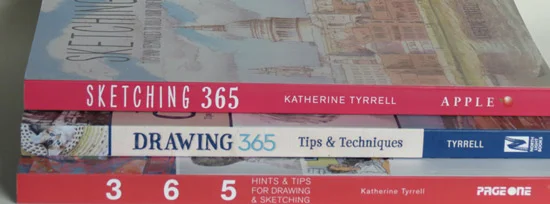Today the Tate was forced to reveal the extent of its sponsorship by BP. Some, like me, were left thinking that its reluctance to reveal the figures was due to fact it was so very much less than people had anticipated. How cheaply a prestige venue has been bought!
Below I explore the case for sponsorship and why it happens, why there has been an issue about BP's sponsorship
 |
| Tate Britain |
Sponsorship of the Arts
Sponsorship of the Arts occurs because:
- individuals genuinely have an enthusiasm for the arts and are well endowed enough to pass on some of their wealth
- some people like the arts but they like having their name on things even more
- companies know that their brand is enhanced if it is associated with a prestigious name.
My personal position is that I am all for the sponsorship of the arts so long as the organisations being sponsored extract as much as possible from those who know that their association with an art gallery or museum will enhance their brand and business.
Indeed I regard it as essential that any Director of an art gallery or museum knows the value of its brand and does not give away the chance to be associated with it too easily or too cheaply!
Why is there an issue about BP's sponsorship of the Arts
I'll state my case up front. I really am not in the least bit bothered by BP's sponsorship of art galleries and museums. I'm far more concerned about:
- fossil fuel companies behaving in a social responsible manner
- those trying to repair their reputation paying a fair price to society for the privilege of being associated with a prestigious art gallery or museum which only exists due to generous state support.
Of course I'd rather that energy sources came from renewable sources. However until somebody makes energy consumption from non-fossil fuel a cost effective and efficient proposition for most of the companies and families in the UK (and elsewhere) I don't see much alternative to the continued use of fossil fuels.
That in turn means oil companies will be looking for ways of sanitising their image - and offers a wonderful opportunity for sponsorship - so long as this is at the right price.
Tate is driven by our charitable mission to promote public understanding and enjoyment of British, modern and contemporary art. We could not achieve this without corporate support. Corporate social responsibility page of the Tate website
In seeking to attract corporate donations and funding agreements, the Tate has to act in the context of its
Ethics Policy which means that it needs to consider whether it should accept funds if they
- Harm Tate’s relationship with other benefactors, partners, visitors or stakeholders;
- Create unacceptable conflicts of interest;
- Materially damage the reputation of Tate; or,
- Detrimentally affect the ability of Tate to fulfil its mission in any other way than is mentioned above.
I do wonder just how many people are genuinely concerned about BP's sponsorship of the Museum. I recognise the activists are but if the gallery visiting general public were offered better accessibility to art vs give up the sponsorship I wonder which they would choose.
The Freedom of Information Request
An application was made in 2012 by
Glen Tarman, an environmental campaigner and an art collective called
Liberate Tate using the Freedom of Information Act for the disclosure of the annual
amounts of BP’s sponsorship of Tate over the 23-year period preceding 2012.
Liberate Tate is a network dedicated to taking creative disobedience against Tate until it drops its oil company funding. The network was founded during a workshop in January 2010 on art and activism, commissioned by Tate.
Tate dragged its feet and came up with all sorts of reasons why it should not be made to disclose the figures. It ended up in court.
Tate also admitted to the court that it feared “protests might intensify” if the raw facts of the deal were revealed and that this would present a risk to health and safety, but the Tribunal were “wholly unpersuaded” by this argument.
Arts Professional - Tate ordered to disclose details of BP sponsorship
On 22nd December the
Information Tribunal ruled that the Tate must disclose the BP sponsorship figures from 1990 to 2006 inclusive in the next 35 days - and today was the deadline. (
This is a copy of the Information Tribunal's decision)
Why any public relations function thinks that releasing the figures on the very last day it has to makes an institution look good is quite beyond me! It speaks of 'dragging feet' and 'recalcitrant schoolboys'.
Ar last - the figures!
Anyway, what the figures revealed
(and here I have to rely on newspaper reports as the Tate has not deigned to issue a press release!) was that corporate sponsorship funding from BP was
- c.£150k pa prior to 2000
- around £330k pa between 2002 and 2007
- I took a look at the published Annual Accounts and the latter figures represent approximately 1.8% of the current Annual Income in 2013/14 relating to Consolidated Funds of £178 million (Annual Accounts 2013-14)
I think most people, including me, were expecting rather more given the fuss made about the sponsorship.
There again maybe the fuss about the sponsorship has imbued it with far more importance and status than in fact it was due. It needs to be recognised that the Tate has a very wide ranging set of partnerships and collaborations with corporate sponsors and Patrons - and BP just happens to be one of them.
I also think it's possible that maybe Art Gallery Directors would do well to research the funding figures involved in other sponsorship deals involving other areas of the economy and other prestigious venues. As it happens I used to know know the level of figures involved in some of them and they are way in excess of what BP has been providing to the Tate - although I do understand the BP strategic approach to funding the Arts has been to spread its largesse around.
Comment in the news
Below are the articles which highlighted the issues relating to BP's sponsorship of the Tate published today and previously.
My vote is with The Art Newspaper!
The objective of the release of the information today should not be to say how easy it would be to give up. Quite the reverse - it makes the case for saying there should be an awful lot more funding required to get a corporate sponsor's name on exhibition banners outside a prestige gallery.
I want Nicholas Serota, Director of the Tate to explain how come BP has provided so little funding for the Tate. Far from the Tate giving it up - I want to see the exposure of the funding provided to provide a stimulus to upping the ante and him going back for more!
Also I think it art museums and galleries need to think very carefully about making corporate sponsorship funding completely open and transparent in their accounts. I don't think this is appropriate for private individuals - but I do think corporate sponsorship of state funded galleries and museums by major corporations and banks should be completely open.
Today's articles
Note that other than the Art Press only one national newspaper picked up the story.
Previous articles
Postscript
 |
Part of the demonstration outside the National Portrait Gallery
22 June 2010 |
I witnessed part of the demonstration which took place outside the National Portrait Gallery on the evening of the BP Portrait Award ceremony in June 2010. This came after right after the awful disaster in the
Deep Water Horison Spill in the Gulf of Mexico in April 2010
I much prefer the National Portrait Gallery's approach which has seen BP's sponsorship of the Portrait Award, based at the gallery, contribute very significantly to the stimulation of overall visitor numbers over the period of the exhibition (over a period of some 3 months in the summer) and the resulting elevation of the status of the NPG on the world stage.
That seems to me to be a very intelligent use of sponsorship.
At the end of the day, in relation to the Tate, I keep being reminded of the old adage "no publicity is bad publicity" and wonder whether the protestors have rather shot themselves in the foot. Far from making a case for BP's sponsorship to be eliminated, I think they may well have made a much better case for it to be increased.



























